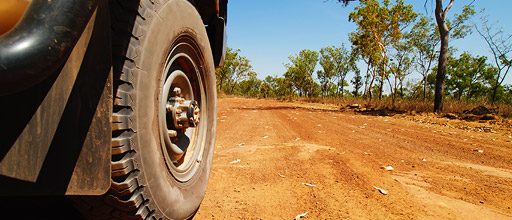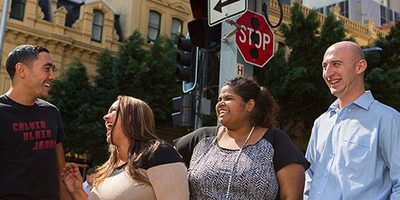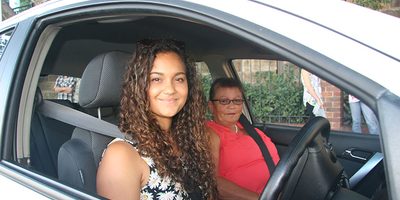
Driving Change - sites extended and cars donated in a major partnership programme helping Close the Gap for young Aboriginal people
Driving Change, an innovative driver licensing programme for young Aboriginal people, has been extended throughout New South Wales, following its first year in Redfern, Griffith and Shellharbour.
The programme’s first three sites, funded by global bio-pharmaceutical firm AstraZeneca, have now been extended to Taree, Dubbo and Condobolin with further funding from Transport for NSW. Driving Change will be established in six more locations by mid-2014, with support from NSW Health.
So far, Driving Change has helped 153 young people to move through the licensing system, including obtaining their learner and provisional licences.
AstraZeneca has also funded three cars for the programme, with another car donated by NRMA Motoring and Services.
Project officer Jake Byrne, of The George Institute for Global Health and The University of Sydney, said the new cars, launched this week, would revolutionise the programme, make a dramatic difference to the lives of those without licences and help to Close the Gap for young Aboriginal people in terms of access to services and opportunities.
“Driving Change is a community-led programme that helps break through the barriers that some young Aboriginal people have to getting a licence, such as access to identification documents, limited availability to supervising drivers or cars, and prohibitive lesson costs.
“The cars allow us to help young people get the hours of practice they need on their learner licence to become safe drivers.”
Professor Rebecca Ivers, of The George Institute and The University of Sydney and who leads the programme, said: “If you have limited means to get to work, uni, TAFE or other health and support services because you don’t have a license and are not able to drive, you never get moving and your whole life stalls.”
“The project evaluation we are undertaking is also crucial so we can show the real difference the program is making to the lives of young people around NSW”.
“We’ve had strong interest from other states, who also struggle with similar challenges. We are looking forward to sharing our results and lessons learned with other states with an eye to expanding the programme to benefit thousands of additional people.”
Managing Director of AstraZeneca Australia, Mark Fladrich, is delighted with the programme’s results. “Driving Change is a shining example of what can be achieved when the business, government and the research sector come together to tackle complex community issues. We are delighted that the programme is going from strength-to-strength and is being extended to communities that require support to help young Aboriginal people get their driver licence.”
NSW Minister for Roads, Duncan Gay, said the initiative was an important step in addressing the life expectancy gap.
“Road traffic injuries are one of the top 10 contributors to the life expectancy gap between Aboriginal and non-Aboriginal Australians," Mr Gay said.
“Initiatives such as these help empower the local community to improve road safety.
“By investing in community-led programmes, and harnessing existing resources we can tap into communities with already established connections," Minister Gay said.
NRMA President Wendy Machin said she was proud to back a programme with such potential. “Encouraging safe driving, particularly amongst young people, is one of the most important things we can do. I’m very pleased that NRMA Motoring and Services is supporting a programme that will help empower young Aboriginal people and their communities.”
Driving Change is funded by the AstraZeneca Young Health Programme, Transport for NSW and NSW Health. The George Institute is leading the programme development, implementation and evaluation. Visit the Driving Change website for more information.
Community-led research programmes on the physical, social, emotional and cultural wellbeing of Aboriginal and Torres Strait Islander people are an important focus for The George Institute for Global Health. Click here for details about our research in this area.





